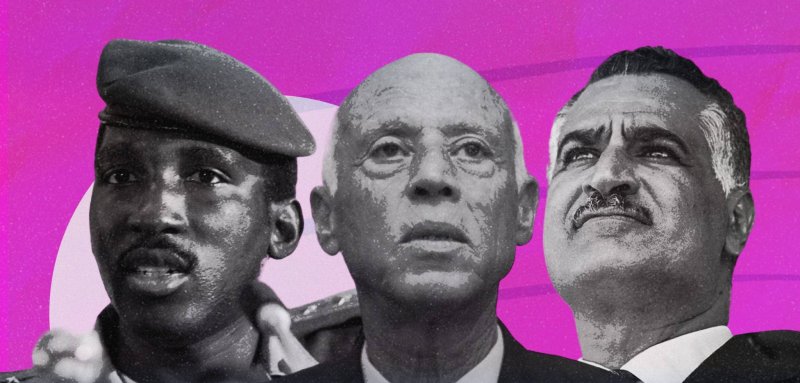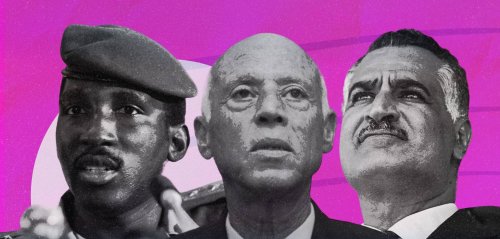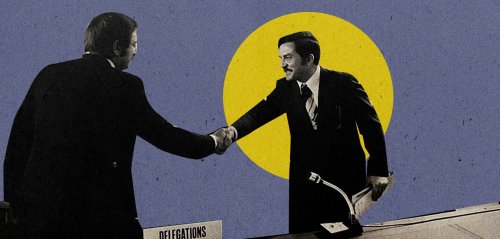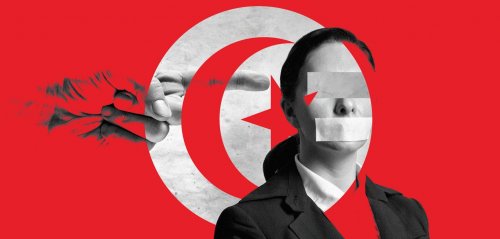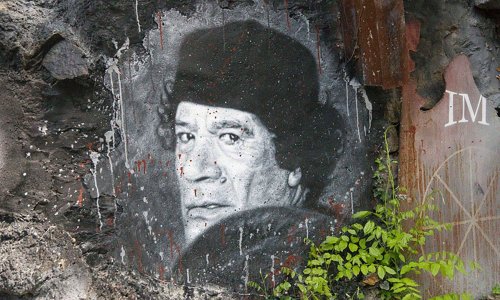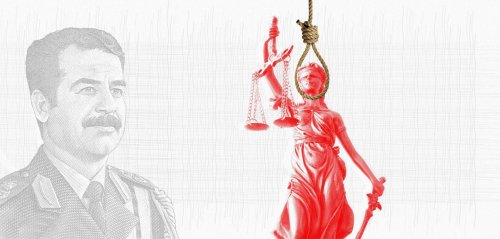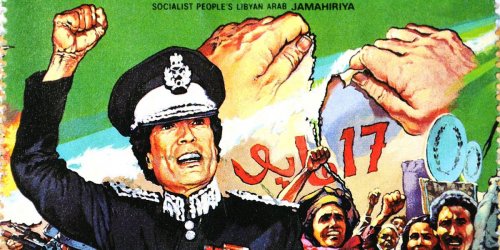Popular appeal and sympathy is one of the successful strategies employed for the continuation of rule in totalitarian regimes. It is the second weapon employed after the use of force and repression. In it, the ruler seeks to play on the emotions of the masses by showing himself to them in the position of the victim in order to make them accept his failures and turn them into another occasion to increase his popularity, in a great paradox. History records that the most famous emotional blackmail operation that the people fell victim to, was the resignation of Abdel Nasser.
Often, issues published in international magazines list and analyze the tears of leaders and presidents, from the tears of Gaddafi during his arrest, to the tears shed by Saddam, then George W. Bush's tears after the events of September, followed by the tears of Hosni Mubarak and before that, the tears of Abdel Nasser, and after him, the tears of Abdel Fattah el-Sisi, and finally, the tears of Algeria's Bouteflika. However, the tears of Bourguiba were the most influential tears in political history.
Habib Bourguiba, the first president of the Republic of Tunisia, was a brilliant actor. As the story goes, he had climbed onto the theater stage as a young man and performed for some time, and he was also one of the few presidents who practiced writing in the press and wrote about the theater, and he was a devoted specter of the theatrical field and himself. Therefore, emotional displays full of crying were part of his governing strategies to win over his people during difficult times and encourage them to rally around him in all circumstances and crises that Tunisia would be going through at the time, whether they were political or economic. Thus he would make the hungry and angry crowds turn into crowds cheering for "the nation's beloved" and its greatest fighter.
Bourguiba was a brilliant actor. Emotional displays full of tears were part of his governing strategies to win over the masses during difficult political or economic times, turning hungry and angry crowds into crowds cheering for "the nation's beloved leader"
On the other hand, the appearance of tears was not the only dramatic and theatrical method that Gamal Abdel Nasser adopted. In the aftermath of the 1967 defeat, while the people were boiling with anger and demanding that those responsible for the defeat be prosecuted, Nasser came up with a diabolical idea with Mohamed Hassanein Heikal: offer a poetic and dramatic resignation, since attack is the best form of defense. In a clever speech, he asked the angry masses to help him resign, thus extinguishing their anger, making them doubt themselves, and subtly urging them to turn their stance around, and consequently turning them into his supporters after the hostility.
The crowds then actually came out to protest for him to retract his resignation and to show their renewed confidence in him. All this took place through a plan to play on the fragile and changing emotions of the people based on their ruler's position. The resignation ploy showed two genius moves: the genius of the political cunning of Abdel Nasser and the genius of the political writer Mohamed Hassanein Heikal.
Kais Saied and the coveted assassination
Since Kais Saied took power, he and his supporters have been repeating that he is under constant threat of assassination, once claiming it was done through poisoning his bread, another time through an explosion, while another was done via letters carrying toxic gases, and another time without giving any specific details. He just mentioned an attempt and attributed it to unknown individuals whom he alone knows. Whenever he reached a critical point in his rule, he would pull out the assassination threat card to gain the sympathy of the masses, and help him get out of the dilemma, in a game that has become a well-known tactic due to its excessive repetition. The latest example was his disappearance for more than ten days, making the narrative of his assassination become a standing hypothesis of the reason for his absence, and launching a campaign under the title "Where is the President?", while lamenting the absence of the country's "savior".
Kais Saied disappeared after he left the people parched and thirsty after passing a law to cut off drinking water at night amid a severe drought, then he reappeared to insult his opponents while considering his absence for eleven days a normal occurrence in a world where regulatory and civil institutions require from the world's officials mere minutes of work time, not days.
Those who contemplate Tunisia's situation during the reign of Kais Saied can easily see that its worst enemy wouldn't be able to do what Saied did in just 3 years, from destroying its economy and institutions to the daily violation of freedom of expression
Muammar Gaddafi was also obsessed with the narrative of assassination and worked to make it a part of his story. Yet, on the day he was assassinated, it was done at the hands of the people whom he had forced to taste the bitterness and whom he also bet on to strike his opponents through popular committees and militias. He worked on making the people more ignorant and fueling their bigotry, instead of building a civilized country. Saddam Hussein also did the same by getting rid of his opponents by assassinating them every time. He did not even hesitate to hang a poet and novelist like Hassan Matlak on charges of plotting a coup and trying to assassinate him, but then ended up with his very own execution. While there is debate about the legitimacy of that execution, it did happen. In contrast, President Kais Saied has thrown poet and researcher Shaima Issa to jail on charges of conspiring against the state, which in turn nominated her for the death penalty. This is how the man confirms his exceptional surreal face and does not hesitate to execute a poet because she raised the victory sign against him and held onto the dream of Tunisians to be free.
This alignment between the two rulers in their enmity towards creators and writers is quite evident, not only through their arrest and liquidation of those who rebel among them but also in their contempt for anything related to literature. Therefore, Kais Saied did not welcome a single writer since he assumed power, except for Taoufik Ben Brik, upon his direct request after he came to power, as he was a supporter of his rival Nabil Karoui. As for Saddam Hussein, he recruited them to applaud him in Iraq and the Arab world, setting up tents for them in al-Murabba to praise him and handing them awards to glorify him and invent his imaginary victories such as 'Saddam's Qadisiyyah' and a series of war stories.
However, those who contemplate Kais Saied's situation discover that he is far from being assassinated, and that there are dozens of reasons that nominate him being in a suicide narrative rather than an assassination narrative.
Whenever he reached a critical point in his rule, he'd pull out the assassination threat card to gain the sympathy of the masses and get out of his mess, in what has become a well-known tactic, the latest of which is him disappearing for more than 10 days
Anyone who contemplates Tunisia's situation during the reign of Kais Saied can easily see that the country's greatest enemy, if there is one, would not be able to successfully do what Saied had done to it during the past three years, from the complete destruction of institutions and the economy, to the violation of freedom of expression that occurs on a daily basis. And because political assassinations are usually supported and sponsored by foreign parties, this has become one of Kais Saied's utopian dreams. If there is an enemy of Tunisia, he would say to him: "I've already assassinated the country for free and saved us the effort."
Because political assassinations are usually supported and sponsored by foreign parties, this has become one of Kais Saied's utopian dreams
King Faisal bin Abdulaziz Al Saud was assassinated on March 25, 1975, because he raised the oil card in the face of the West and cut off oil during the October War, from the United States and the West in general. So what did Kais Saied do to the West to be assassinated?
Activist and labor leader Farhat Hached was assassinated because he was hurting colonialism with his activism, and so "The Red Hand" was recruited to eliminate him. Also, because they did not want him to be a future leader of Tunisia. Algerian President Mohamed Boudiaf was assassinated because he came back to extinguish the flames of a civil war that was run by arms dealers and extremist ideologies, and because represented a danger to its desired continuation. Anwar Sadat was assassinated because he came with victory after defeat, and then followed it with a tribute to the brave ones, so they called him a traitor and killed him. Mahatma Gandhi was assassinated because he defeated the West and Britain with non-violence, and leader Chokri Belaid was assassinated because he was a free, rational voice that was heard, charismatic, and truly culturally articulate. So where does Kais Saied and his stuttering words even reach in comparison?
Kais Saied today can only remind us of the Caribbean tyrant's corpse in Gabriel Garcia Marquez's "Autumn of the Patriarch". He's been dead for a while, but the people lost their sense of smell due to the pandemic, and are waiting for the bad odor to bury him
They attempted to assassinate Bourguiba because he was a strong and powerful dictator who also had the support of the masses. He was a complex character who was difficult to overthrow by mobilizing the crowds against him, so opposing groups chose to retaliate against him in the same way as they had killed another leader, by eliminating him through a coup and with the complicity of Gaddafi and other parties. So why is Kais Saied being assassinated when he is dying a slow death every day, paving the way for his own humiliating departure from the world of politics, where no one believes him anymore except for a few groups that are saddled with the task of idolizing him in order to benefit from his presence, and which will throw away their flags on the day a real revolution erupts in Tunisia against poverty, hunger, and ignorance?
Today, Kais Saied can only remind us of the corpse of the Caribbean tyrant in Gabriel Garcia Marquez's novel "The Autumn of the Patriarch". He has been dead for a while, but the people have lost their sense of smell, due to the pandemic, and are waiting for the smell to spread to hurry to bury him. Will we wait for the people to recover from the effects of the pandemic to regain their sense of smell, or will the vultures invade the palace and break the windows to reach the rotting corpse?
Gabriel Garcia Marquez's novel, translated by Muhammad Ali al-Yousifi, begins with a scene detailing how the vultures had already eaten the carcass of the president by the time they came for him, with the following passage: "Over the weekend the vultures got into the Presidential Palace by pecking through the screens on the balcony windows which were no match for their beaks, and the flapping of their wings stirred up the stagnant time inside, and at dawn on Monday the city awoke out of its lethargy of centuries with the warm, soft breeze of a great man dead and rotting grandeur."
Raseef22 is a not for profit entity. Our focus is on quality journalism. Every contribution to the NasRaseef membership goes directly towards journalism production. We stand independent, not accepting corporate sponsorships, sponsored content or political funding.
Support our mission to keep Raseef22 available to all readers by clicking here!
Interested in writing with us? Check our pitch process here!
